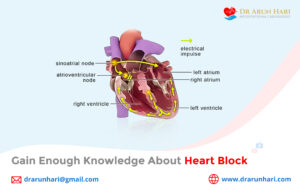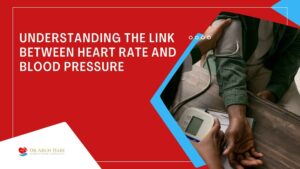Understanding The Basics: Blood Pressure Vs Pulse Rate
The confusion around blood pressure vs pulse rate stems from the fact that both are vital signs and are often checked together. Blood pressure refers to the force your blood exerts on your arteries, while pulse rate (or heart rate) refers to how many times your heart beats per minute. While they can influence each other, they measure different physiological parameters.The Complexity Of Hypertension And Low Heart Rate
Hypertension and low heart rate can occur in combination, especially in patients on beta-blockers or those with electrical conduction problems in the heart. A low heart rate can sometimes be protective, but when combined with uncontrolled hypertension, it may indicate underlying cardiac dysfunction that requires immediate attention from a trained professional like Dr. Arun Hari.What Is High Blood Pressure Bradycardia?
High blood pressure bradycardia refers to the unusual scenario where elevated blood pressure is paired with a slower than normal heart rate (below 60 bpm). This may seem paradoxical but can occur due to autonomic imbalances, nerve dysfunction, or adverse drug reactions. Dr. Arun Hari uses advanced diagnostic tools to detect these patterns early.The Risk Of High Heart Rate And High Blood Pressure
Experiencing high heart rate and high blood pressure simultaneously—especially during rest—can be a red flag. This often suggests sympathetic overdrive due to stress, anxiety, thyroid dysfunction, or arrhythmias. Dr. Arun Hari provides integrated management strategies that address both parameters together for optimal outcomes.How To Interpret BP Vs Pulse
Understanding BP vs pulse in clinical settings helps differentiate between normal physiological responses and dangerous abnormalities. For instance, a rising pulse with falling blood pressure may indicate internal bleeding or shock. Dr. Arun Hari excels at interpreting these subtle signals in acute and outpatient care settings.Why Some Patients Have High BP And Low Heart Rate
A high BP and low heart rate combination is often caused by medications or age-related changes in the heart’s electrical system. While not always an emergency, persistent or symptomatic cases should be evaluated by a cardiac specialist. Dr. Arun Hari applies his interventional expertise to avoid unnecessary surgeries while addressing root causes.Clinical Insight Into Hypertension Heart Rate Trends
The hypertension heart rate connection plays a pivotal role in determining long-term cardiovascular risk. Patients with persistently high heart rates alongside hypertension may face accelerated arterial damage. Dr. Arun Hari’s preventive cardiology approach emphasizes holistic care—medications, diet, stress management, and regular monitoring.So, Which Is More Dangerous: High BP Or High HR?
The answer depends on context. A dangerously high heart rate (tachycardia) can lead to sudden cardiac arrest, especially if it stems from arrhythmia. On the other hand, uncontrolled high blood pressure is a silent killer—causing strokes, kidney failure, and heart attacks over time. According to Dr. Arun Hari, both require equal respect, timely diagnosis, and careful management.About Dr. Arun Hari – Expertise That Saves Lives
Dr. Arun Hari is a highly respected interventional cardiologist in Abu Dhabi, known for his ability to diagnose and manage complex cardiovascular conditions with precision and compassion. His experience includes fellowships at premier institutions, having faced high-pressure medical situations with the clarity and decisiveness that saves lives.When To See A Cardiologist
If you notice irregular pulse, elevated blood pressure, unexplained fatigue, or breathlessness, don’t wait. Book a consultation with Dr. Arun Hari:- Use the form at drarunhari.com/book-appointment
- Call +971 544815774
- Send a WhatsApp message through the website
Summarizing
Whether you’re worried about high blood pressure vs heart rate or feel confused about how the two interact, expert guidance is just a step away. Don’t take chances with your heart. Choose experience, accuracy, and trust—choose Dr. Arun Hari.Frequently Asked Questions – High Blood Pressure Vs. High Heart Rate: What’s More Dangerous?
High blood pressure vs heart rate refers to evaluating which condition poses a more immediate or long-term risk to your cardiovascular system. Dr. Arun Hari explains that both are critical indicators, and their interpretation depends on the patient’s symptoms, medical history, and associated risk factors.
While blood pressure vs pulse rate are often checked together, they represent different physiological functions. Blood pressure measures the force of blood on artery walls, whereas pulse rate tracks heartbeats per minute. Dr. Arun Hari uses both metrics to assess cardiovascular health comprehensively.
Yes, hypertension and low heart rate can sometimes indicate serious heart issues like conduction disorders or adverse medication effects. Dr. Arun Hari uses ECG and Holter monitoring to determine if this pairing poses a threat and tailors treatment accordingly.
High blood pressure bradycardia occurs when your blood pressure is high but your heart rate is abnormally low. This could point to issues with the autonomic nervous system or side effects from medication. Dr. Arun Hari performs advanced cardiac evaluations to ensure nothing is missed.
Absolutely. High heart rate and high blood pressure often co-occur during stress, panic attacks, or physical overexertion. However, if persistent, they may signify serious conditions like arrhythmia or overactive thyroid. Dr. Arun Hari provides comprehensive evaluations and treatment plans to manage both effectively.
A disparity in BP vs pulse can point to heart failure, shock, or internal bleeding in critical cases. In routine care, a rising pulse with stable BP might be benign. Dr. Arun Hari closely analyzes trends across time to understand their clinical importance.
High BP and low heart rate is often caused by medications like beta-blockers or age-related degenerative changes. Dr. Arun Hari ensures that patients with this combination receive a tailored treatment plan without unnecessary invasive procedures.
A consistently elevated hypertension heart rate can increase your risk for stroke, heart failure, and arterial damage. Dr. Arun Hari monitors this closely and emphasizes lifestyle modification along with medication to reduce cardiovascular risk over time.
If you are worried about any of the above symptoms, it’s best to consult a cardiologist without delay. Dr. Arun Hari, an expert Interventional Cardiologist at LLH Hospital, Musaffah, Abu Dhabi, offers state-of-the-art diagnosis and care for both blood pressure and heart rate abnormalities.
Booking is simple:
- Fill out the appointment form at drarunhari.com/book-appointment
- Call +971 544815774
- Use the WhatsApp chat feature on the website to send a message
Dr. Arun Hari’s team will assist you in scheduling a convenient consultation time.
Don’t delay care when your heart is signaling something important. Whether it’s about high blood pressure vs heart rate or unexplained symptoms, the expertise of Dr. Arun Hari could make all the difference.





